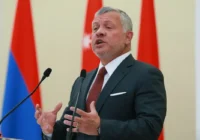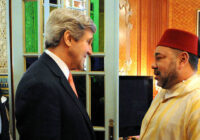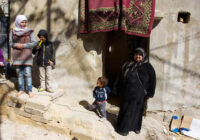What next for Saudi Arabia and King Salman?
The passing of King Abdullah of Saudi Arabia will change little in the kingdom and its relations with the West. The monarch had been ailing and reclusive for some years, and his anointed successor (and brother), Salman, had been handling the kingdom’s leadership in all but name.
Salman’s reign will likely be characterized by a steady hand on the tiller and a continuation of the mutually fruitful relationship with the West.
This is unlikely to involve any major sort of reform of the kingdom. Riding the tigers of a strict religious code, ethno-sectarian splits and regional power balancing, Salman is a shrewd operator who knows that change for the sake of it might bring down the house. He will have to continue to confront the double-edged sword of the kingdom’s religious conservatism and those who take it to extremes, but this is not new for a Saudi monarch. Business as usual, then.
However, in taking on the mantle of king, Salman exemplifies the generational challenges faced by the House of Saud in the next decades. At the age of 79, Salman is the latest in a line of kings who are all themselves sons of the original Saudi monarch, King Abdulaziz.
The founder of the House of Saud, Abdulaziz forged the nation into an independent state in the 1930s, along with the political support of the British, the religious backing of the Wahhabi al-Sheikh clan and the financial might underwritten by the colossal oil reserves discovered at just about the time when he came to power.
Not only was he the founder of the royal house, Abdulaziz was also the progenitor of it. Marrying more than 20 times and producing around 45 sons, Abdulaziz’s descendants now number in the thousands, although the inner circle of power is considerably smaller. It is from within that elite that the Saudi kings have been chosen, with a crown prince moving into line when a monarch dies.
With the ages of the men involved, some of the crown princes don’t even get a crack at the throne. Salman himself moved into the place of heir apparent when the previous number two failed to outlive the king.
The Riyadh Conundrum
In the same manner that the Soviet Union had to move beyond choosing leaders that were extant in the revolution, the Kingdom of Saudi Arabia will now face with increasing urgency the need to appoint monarchs who are not direct sons of Abdulaziz. Might that involve the sort of primogeniture (where the first-born male child inherits the throne) that we see in other monarchies?
However, such a move would leave factions of the inner circle forever disenfranchised. There are grandsons aplenty, but the number of candidates starts to become exponential. An “Allegiance Council” was created in 2006 to examine these questions and to try and plan for a clear succession.
The jockeying for power will be intense over the next few years of Salman’s rule. In a sense, his tenure and its legacy will not be to what extent he changes domestic, regional or Western relationships, but what stable framework he can establish for taking the kingdom’s ruling house through the rest of this century.
*[This article was originally published by The Conversation.]
Fair Observer is a nonprofit organization dedicated to informing and educating global citizens about the critical issues of our time. Please donate to keep us going. ![]()
The views expressed in this article are the author’s own and do not necessarily reflect Fair Observer’s editorial policy.
Photo Credit: US Department of State / Flickr
Support Fair Observer
We rely on your support for our independence, diversity and quality.
For more than 10 years, Fair Observer has been free, fair and independent. No billionaire owns us, no advertisers control us. We are a reader-supported nonprofit. Unlike many other publications, we keep our content free for readers regardless of where they live or whether they can afford to pay. We have no paywalls and no ads.
In the post-truth era of fake news, echo chambers and filter bubbles, we publish a plurality of perspectives from around the world. Anyone can publish with us, but everyone goes through a rigorous editorial process. So, you get fact-checked, well-reasoned content instead of noise.
We publish 2,500+ voices from 90+ countries. We also conduct education and training programs
on subjects ranging from digital media and journalism to writing and critical thinking. This
doesn’t come cheap. Servers, editors, trainers and web developers cost
money.
Please consider supporting us on a regular basis as a recurring donor or a
sustaining member.
Will you support FO’s journalism?
We rely on your support for our independence, diversity and quality.







Comment